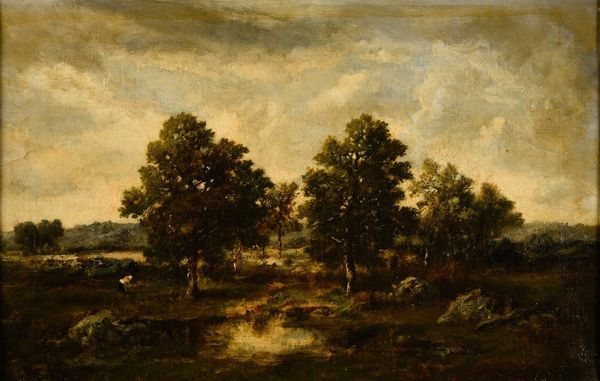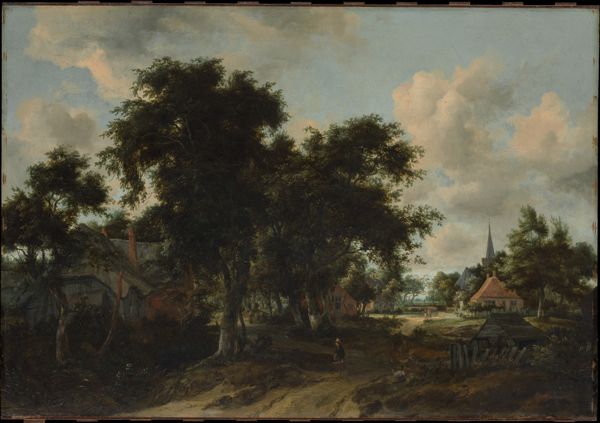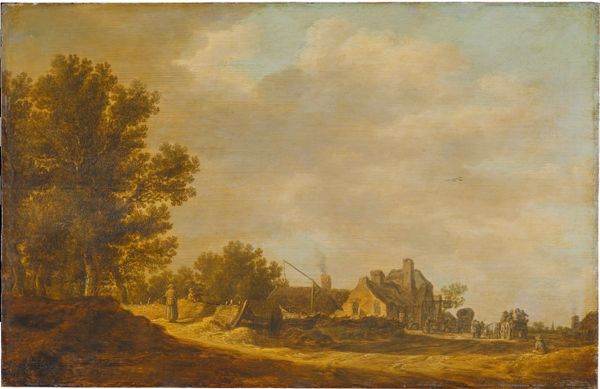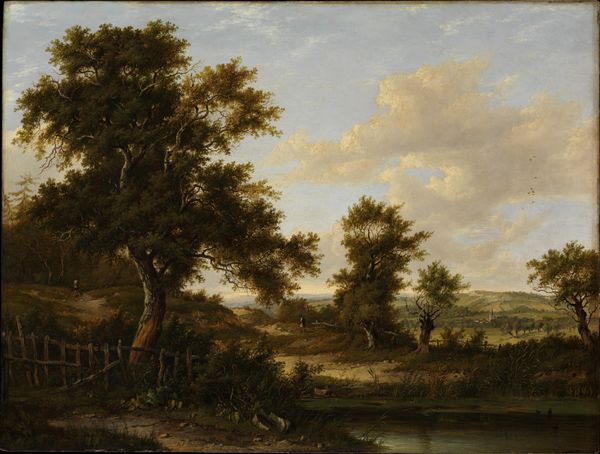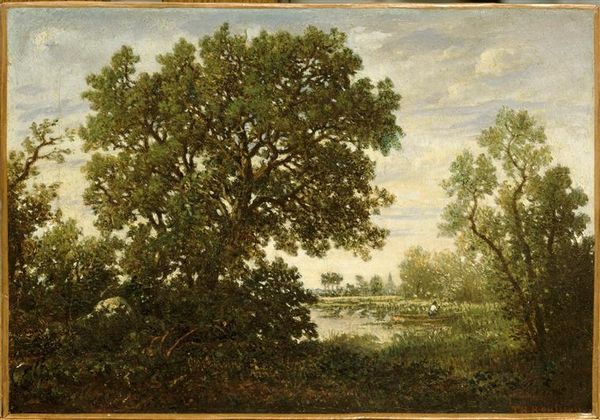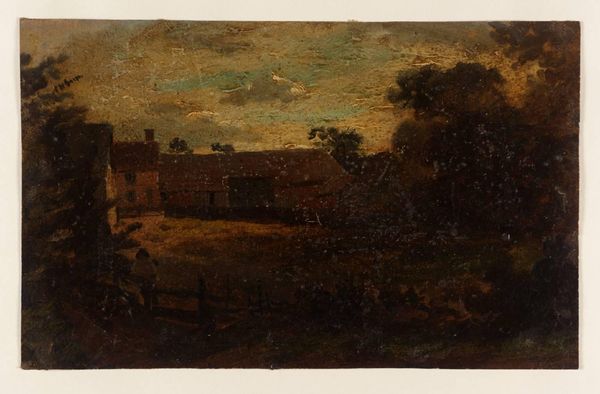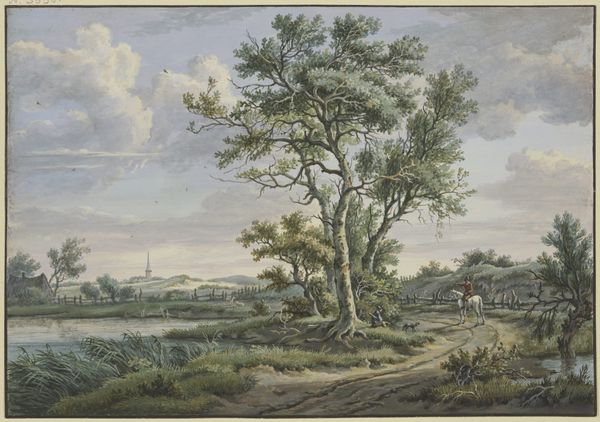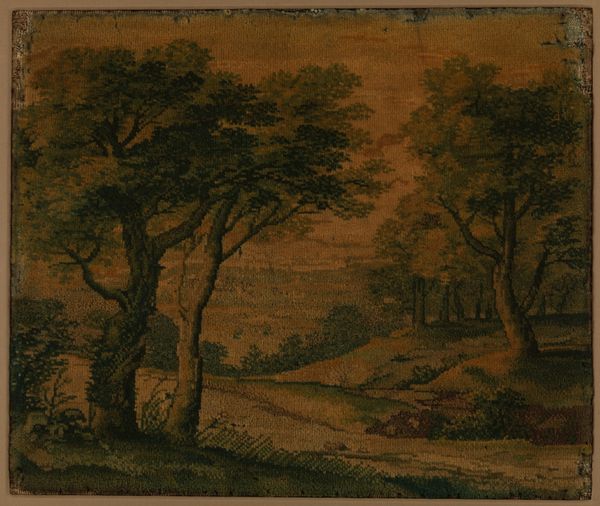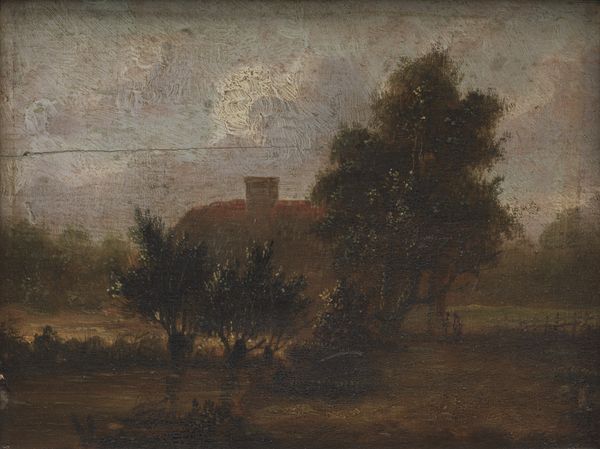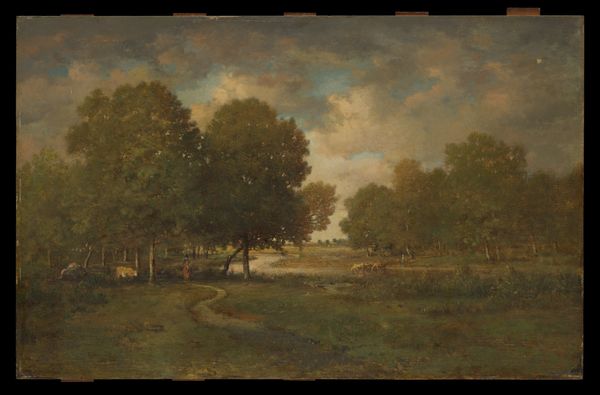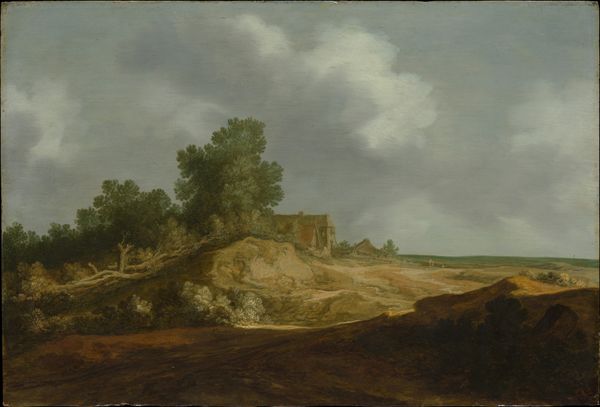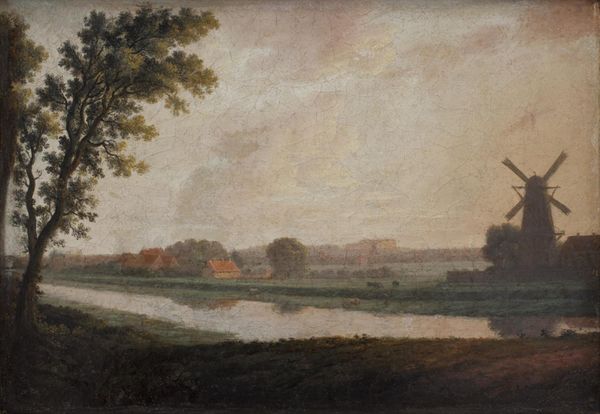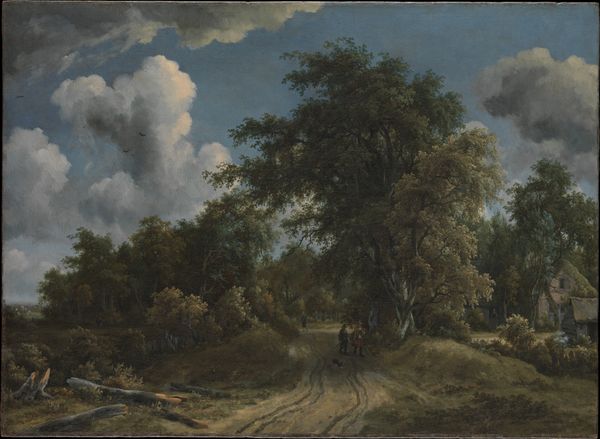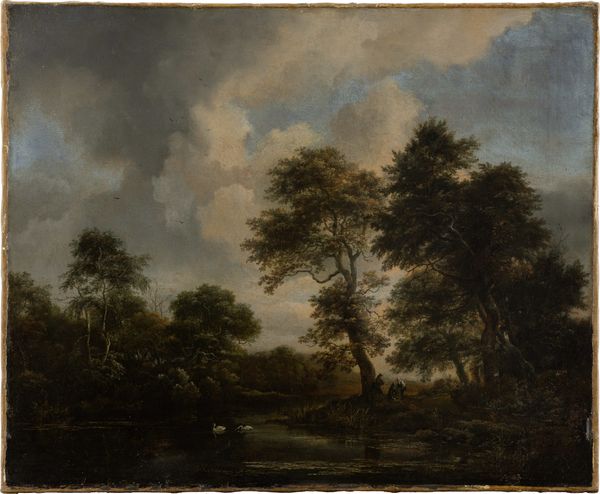
Copyright: Public domain
Curator: Theodore Rousseau’s "Normandy Farms," completed in 1867, offers a glimpse into the rural landscapes that defined much of 19th-century France. Editor: It evokes a really powerful sense of quiet, almost melancholy. The muted colors, the stillness of the water... it feels very much like a reflection on a passing way of life. Curator: Precisely. Rousseau and others in the Barbizon school were consciously turning away from academic painting, seeking authenticity in depicting nature and rural life. Their embrace of the *plein-air* style was quite revolutionary, freeing them from studio constraints and emphasizing direct observation. Editor: And the landscape itself carries so much symbolic weight. Think of the tree, rooted to the soil and reaching for the sky; in contrast, a quiet symbol for home and community. Rousseau seems less interested in the specifics of the farms than the emotional resonance of such a setting. Curator: These paintings were shown in a period of rapid urbanization, and in this way it becomes an idyllic symbol of a French cultural identity threatened by modern life. Editor: Yes, there’s a clear romanticisation. And that idealized portrayal likely resonated deeply with urban audiences longing for simpler times, maybe feeling a growing detachment from nature itself. What’s interesting, though, is that the realism present also stops short of sentimentalism; there's no one actually depicted working, interacting or visible here which removes the image a layer from this romantic reading. Curator: Absolutely. The image prompts us to contemplate these contrasting realities of nostalgia and change. "Normandy Farms" really captured a critical period, offering insight to the push and pull between tradition and progress, reminding us how artists navigated such tensions and used these scenes to validate the natural and slow pace of country life. Editor: A quiet painting speaking volumes. The lasting allure lies in its visual poetry and quiet historical underpinnings that stay with us, and make us consider what’s lost as society progresses.
Comments
No comments
Be the first to comment and join the conversation on the ultimate creative platform.
